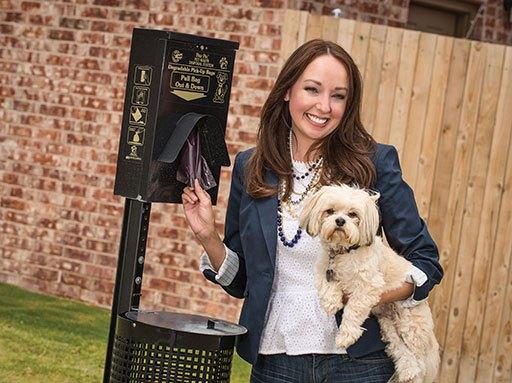 Accepting pets will boost your property income—
Accepting pets will boost your property income—
Positively impact
your bottom line!
A big question in property management today is "should we or should we not accept pets?" Many managers think that accepting pets is asking for extra headaches, including increased resident complaints and dog waste removal problems that can come with allowing pets on the property. An increasing number of properties, however, are starting to accept pets because of the positive impact it has on the bottom line.
Pets can produce more revenue four ways:
|
1. Double your |
2. Gain an edge over |
3. Reduce costly |
4. Increase overall property income: |
The key to being a successful pet-friendly property is a sound pet policy that would typically include the following:
4Increased security deposit: Add several hundred dollars to the refundable security deposit to specifically cover any damage the pet might do to the premises.
4Higher monthly fee: Add a minimal monthly charge ($10 to $20) to the rent to cover upkeep of the grounds and the extra wear and tear on carpet and flooring for convenient pet waste disposal.
4Checking out the pet in advance: Be sure you are renting to responsible pet owners by requiring a visit with the pet before accepting the resident. This lets you identify pets that appear to be out of the owner's control or that have vicious or aggressive dispositions. It's important to ask if the dog is spayed or neutered. Owners that spay or neuter their pets tend to be more responsible.
4Providing pet waste stations: Make it easy for dog-owning residents to comply with the pet waste removal policies by positioning pet waste stations dispensing doggie poop bags.
4Setting limits: Limit the number of units allowed to have pets. Once the pet limit is set, you'll know how many pet waste stations you need to install that provide doggie poop bags to owners. This helps prevent dog waste removal problems. You can even provide biodegradable dog poop bags, which are safer for the environment.
4Adding a pet addendum to the lease: Responsible pet owners should have no objection to following added rules, which might include:
• Requiring the use of a leash when on the property: This helps ensure the comfort and safety of all residents.
• Including pet specifics in the lease: Establish that the agreement is for specific pet(s) only by adding an addendum to the document that includes a photo of the pet(s), the name of the pet(s), and a copy of the vaccination documents.
• Establishing the penalties for infractions: Like any lease requirement, if a resident breaks the pet rules, they should be subject to similar penalties, including eviction. It's important to spell out the action that would be taken with each infraction of the rules.
Following these steps and adding reasonable requirements to your lease can help ensure that you gain all the benefits of becoming a pet-friendly property without any of the headaches.
